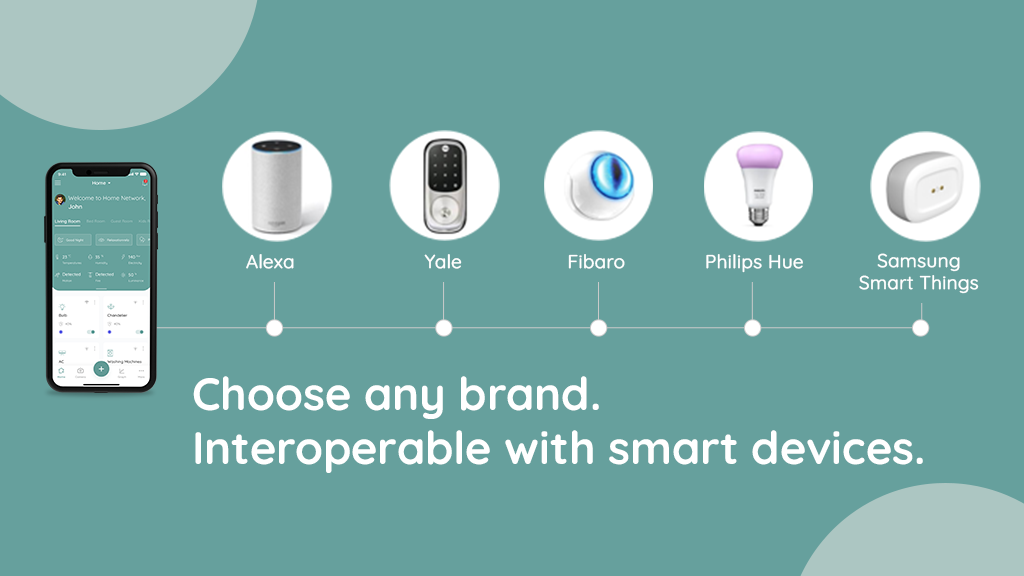Smart Home Interoperability—Empowering customers to choose your brand
Customers are frustrated living in a smart home that is no longer connected in its true sense.
Every new smart device launched in the market not only adds more competition to service providers, but also creates a disjointed user experience for your customer.
A smart home consumer needs interoperability as a solution to get their multi-branded smart home devices and apps to talk to each other. A smart home IoT platform provides middleware that encapsulates common building blocks that are required to deliver any connected product.
Applications built using COCO and devices ‘Buzzed on COCO’ are interoperable with all things smart. The COCO IoT Gateway for example, works with over 2000 Zigbee, Z-wave and Bluetooth devices from various brands. Platform SDKs and APIs allow the platform owners to become the central aggregation point of the smart home.
Interoperability enables the creation of an eco-system of Device Creators and App Developers that can work with a single app.
How do consumers benefit connecting Apps and Devices in a Network?
Using COCO, service providers can create custom solutions with App-to-Device communication which allows the applications and devices on a network to connect, share resources, and seamlessly interact with each other. Devices in a network can advertise their resources, capabilities and attributes to the apps in the network. This allows consumers to add any device from the market and make it work within the smart home all the while using a single service provider application.
Additionally, the COCONet organizes app and device nodes into an overlay network and clusters them into a mesh topology. This enables decentralized interoperable communication within a network between apps and devices all the while maintaining consumer privacy.
While providing an interoperable Smart home enables the service provider to solve a very important consumer sore point today, interoperability via a Smart Home platform can bring great business value to the smart home service providers in the future..
Benefits to business with Interoperability provided by a Smart Home Platform
Rapid Customization
An Open Smart Home Platform brings an ecosystem of device makers that allows service providers to design bundles with a combination of interoperable devices and services that promise security, safety, connectivity, and comfort with data privacy. Additionally, the platform allows rapid digital transformation solutions for alternate B2B industries like Hotels and Resorts, Enterprise Automation, Healthcare, Manufacturing, and Building Management Systems.
Reduced Total Cost of Ownership
A platform by definition takes all the common building blocks and captures them in a single reusable software component. With a Smart Home platform available to license, OEMs can leverage it to save 70% development time. They can create a private ecosystem of all their smart appliances using Device-to-Device communication in real-time with interoperability, remote and offline connectivity with huge savings on the Total cost of Ownership (TCO). A network of devices on a common unified network can further share resources data and create rules for automation to fulfill tasks across the entire network.
Brand Agnostic
Bring your family of devices that can communicate and interoperate with each other to give your customers the experience they have been looking for. All this with just a few lines of code, and no cloud or backend development required.
COCO is brand agnostic—something that our service providing partners seriously value.









Comments :
Leave a comment